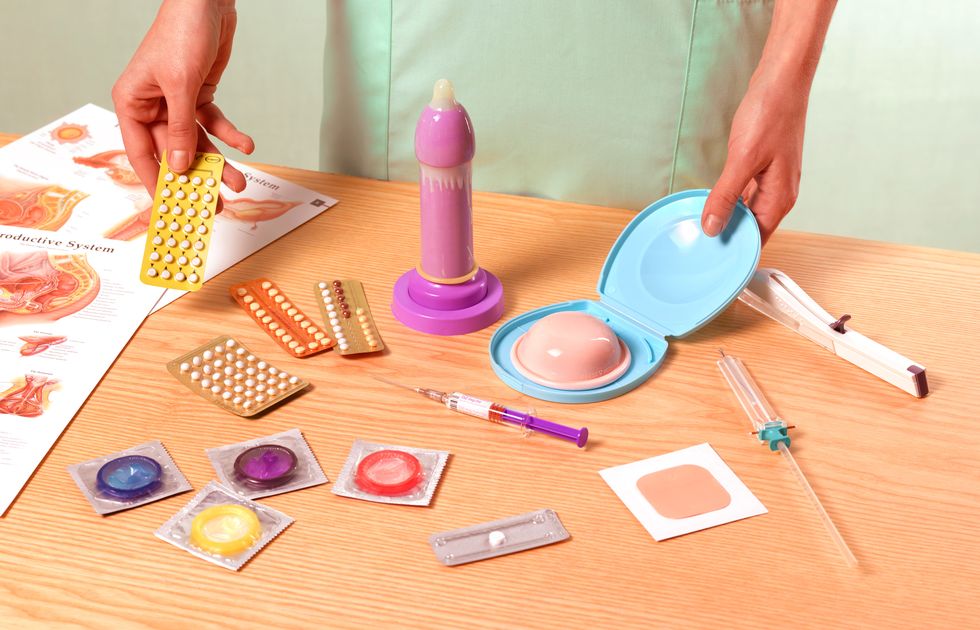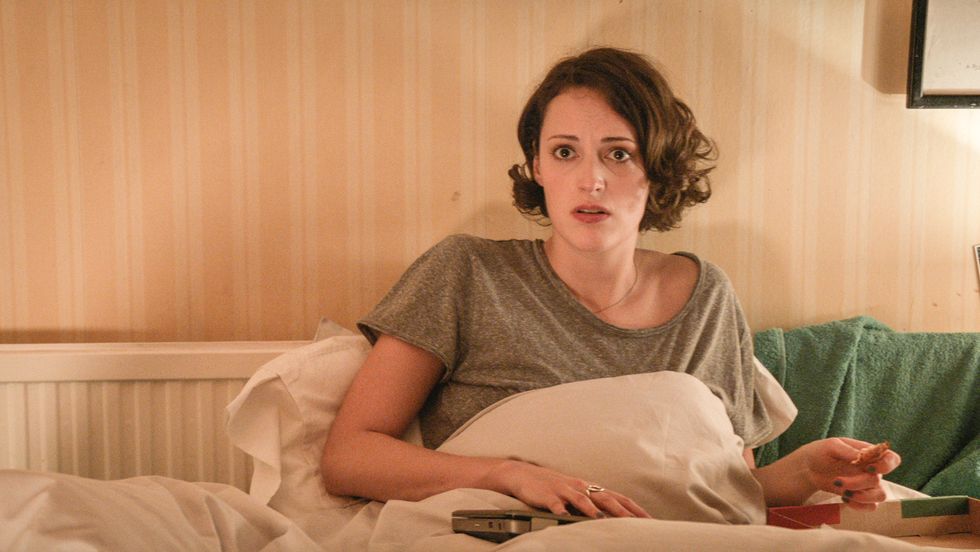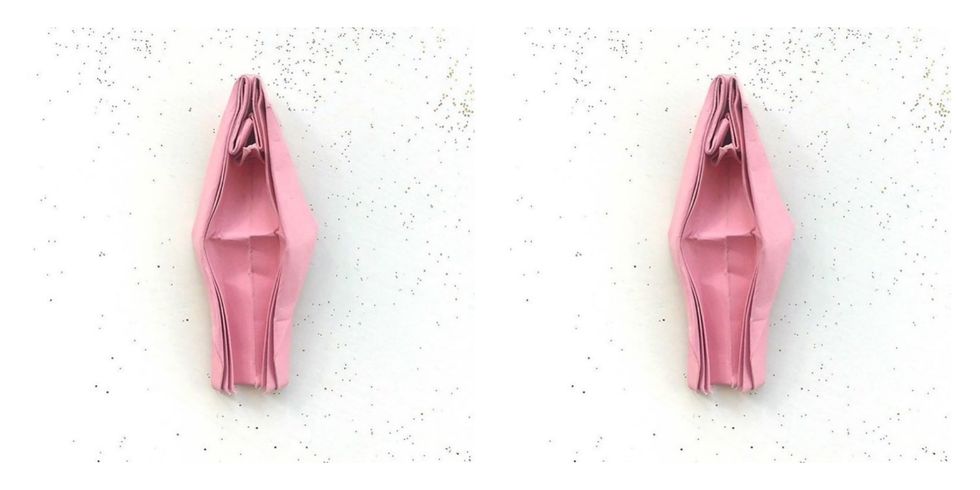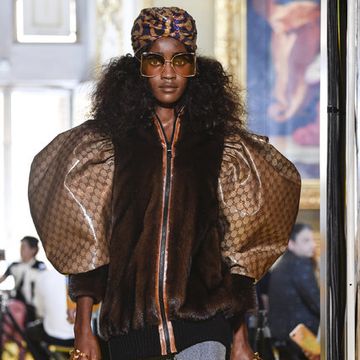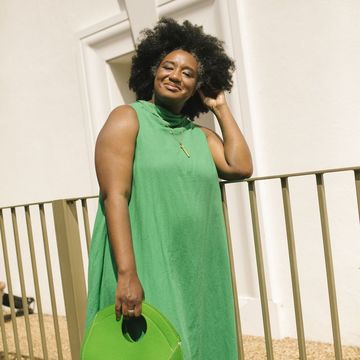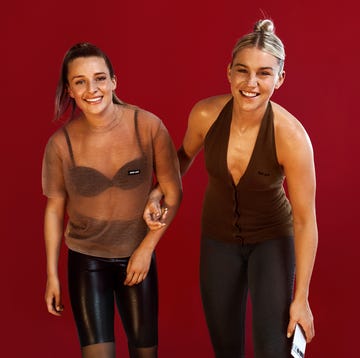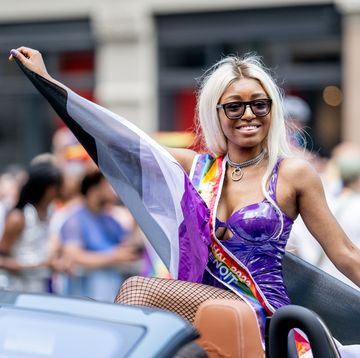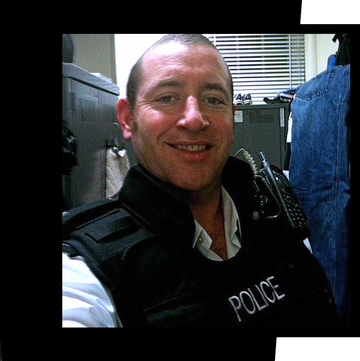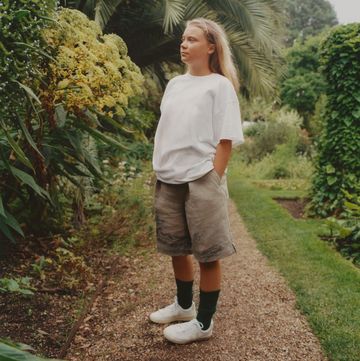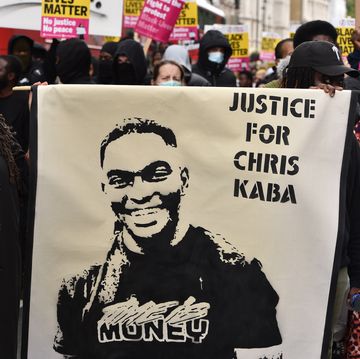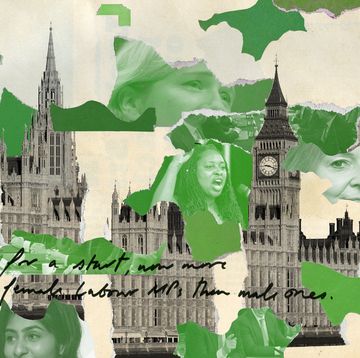There’s a scene in the Netflix comedy Sex Education that, on watching earlier this year, I couldn’t get out of my head.
In it the protagonist, Otis – awkward, teenage, brilliantly played by Asa Butterfield – is given a diagram of a vulva by his sex ed teacher, and asked to label its parts. Otis’ mother is a sex therapist, so he’s preternaturally clued-up and completes it in minutes.
This is not what bothers me.
No, what niggled was the suspicion that, were I to be given the same diagram, I wouldn’t be able to finish it at all.
Presumably I sat through a sex ed class once. I must have. But I genuinely have no recollection of doing so. Not at my liberal, co-ed primary, nor at my buttoned-up, religious, all-girls’ secondary, where the only boys we knew attended the local Christian youth group, and where absolutely nobody had sex.
The only model penis I can remember encountering in any vaguely educational setting is the enormous, very pink, quite alarming, rampant rabbit that accompanied the sales rep at the Ann Summers party that someone in my university flatshare decided to throw. More surprising still is that, until very recently, I hadn’t questioned this.
My usual curiosity was smothered first by youthful embarrassment, and later by shame.
Not shame about my body – but rather about the fact that I was an educated, adult feminist who, at 34, didn’t really know how that body worked.
I’m not alone. Just 45% of teens rate their sex education as ‘good’ or ‘very good’, says the Sex Education Forum.
According to gynaecological charity The Eve Appeal, 44% of us can’t identify the vagina and 60% the vulva (not, as I thought for literally my entire 20s, a pretentious synonym for ‘vagina’, but the collective term for the vaginal and urethral openings, labia and clitoris).
A 2015 study by Ovarian Cancer Action, meanwhile, found that two-thirds of us are too embarrassed to even say the word ‘vagina’. Two-thirds!
This matters, says Dr Anita Mitra, author of The Gynae Geek: Your No-Nonsense Guide to ‘Down There’ Healthcare. ‘These things cause poor quality of life for so many women.’ Her book opens with a graphic account of a woman in A&E with periods so heavy she was haemorrhaging blood clots.
She’d had them for 20 years and never talked about them. In lieu of knowledge, myths proliferate, argues Dr Mitra. She cites women who thought that being in a same-sex relationship meant they didn’t need a smear test, or a blogger who claimed periods were a sign of a toxic diet.
My own ignorance means I’ve muddled through my adult life, always slightly mystified by my own biology. Sexually, I was a late starter.
Periods – not exactly a rare occurrence – were a source of anxiety.
Aged 14, agonising over forgetting tampons, or living in fear of stains, was fair enough – but at 25, 28, 33...? I assumed I was failing at menstrual management while everyone else aced it.
The result has been a constant soundtrack of unease: spells of taking the pill even though I hated how it made me feel, because speaking about contraception was just too awkward, years buying sanitary products online because IRL was too uncomfortable (in emergency situations I’ve been known to dispatch my boyfriend to the corner shop).
So when Otis the Sexual Whizzkid labelled that diagram in seconds without breaking a sweat, I decided it might be time to do something about it. It was time to shrug off the years of ignorance and prudishness, and embark on a journey of sex education.
Sex education for grown-ups, if you will.
After having spoken to Dr Mitra, I meet up with journalist Lynn Enright, who has spent the past year up to her (metaphorical) eyeballs in vulvas. In March, she published Vagina: A Re-Education. With chapters dedicated to pregnancy, periods, orgasms and more, it’s part-memoir, part-manifesto.
‘I could see that women were keen to discuss still-taboo topics,’ she says. ‘It felt connected – the bad sex education I received, the sometimes- horrible early sexual encounters, the shame and stigma.’
Her message is twofold: we need to get to know our vulvas and, just as crucially, we need to get comfortable talking about them.
‘People can gain strength and succour from other people’s stories,’ she says.
Enright is part of a wave of women trying to turn up the volume on conversations around our bodies. This month, Vagina is joined on shelves by Period Power: ‘a practical blueprint for aligning daily life with the menstrual cycle’, courtesy of women’s health practitioner Maisie Hill.
In June, anti-FGM activist Nimco Ali publishes Rude: There Is No Such Thing as Over- Sharing. On TV, Channel 4 aired 100 Vaginas about photographer Laura Dodsworth’s project capturing, yes, 100 vaginas, while Netflix has given us Sex Education and Big Mouth, which follows 7th graders as they navigate puberty – wanking and all.
I read Vagina in one go, my mind repeatedly blown. I learnt new terms (such as ‘vulvodynia’ – persistent vulval pain), I learned that male infertility accounts for around half of infertility (despite us only really talking about it in relation to women) and I learnt about the ‘orgasm gap’, whereby 95% of straight men usually orgasm when sexually intimate, compared to just 65% of straight women.
More on that later.
But perhaps the most thought-provoking chapter is the one on the hymen. And by hymen, I mean the sheath-like ‘seal’ at the opening of the vagina, which breaks when you first have penetrative sex, right? Wrong.
The hymen has many guises: crescent-shaped for 40% of women, ring-like or entirely absent in others. So, if you didn’t bleed when you first had sex, you may not have already ‘broken’ your hymen with a tampon or, er, horse riding (side note: who on earth came up with this niche explanation?).
I found this fact so astonishing that I repeated it to every woman I know (turns out, talking about sex isn’t as hard as I thought).
The hymen detail may sound trivial, but in some societies, women face grave consequences if they don’t bleed on their wedding night.
Enright recounts how, in some traditional Lebanese families, women are advised to take animal blood to their wedding bed. Online, you can buy ‘fake hymens’, containing a capsule of dye.
‘The silence surrounding the vagina and sexual health is literally killing women and girls,’ agrees Nimco Ali.
‘We’re told that our body should be hidden, our pain never spoken of. FGM – like rape and other gender-based violence – benefits from this. If you can’t speak out, you think you’re the only one suffering.’
Even in sexually liberal cultures, false norms have an impact.
Refinery29 found that 48% of its readers worried about the appearance of their vulva and, according to the International Society of Aesthetic Plastic Surgery, in 2016, the number of labiaplasty procedures performed increased by 45%.
Yet this comes with a risk of bleeding and infection.
Reading about this, I thank my lucky stars it wasn’t around when I was younger and more insecure. I doubt I’d have considered it – but really, don’t young women have enough to worry about already?
Speaking of which: that orgasm gap. I’ve been with my partner for the best part of decade, so we have, at least, figured out what one another likes. Before that, I was a serial monogamist – with mixed results.
‘Society has made it acceptable for women to put male satisfaction ahead of their own,’ says Alex B Porter, author of The Cunnilinguist: How To Give And Receive Great Oral Sex.
If this is going to change, she says, we need to rethink our definition of sex, which is often seen as a penetrative act. Not only is this exclusionary, according to the largest- ever study into the female orgasm – conducted by Indiana University researchers – just 18% of women orgasm through penetration alone.
Alex’s advice? ‘Go forth and read, then find a supportive partner (or group) for practical discovery sessions.’ And we need to destigmatise masturbation: ‘It’s one of the most satisfying ways to learn about yourself.’
It’s taboos like this that the new wave of sex educationalists are seeking to bust. And they might just be succeeding.
Fleabag has memorably put female masturbation on screen. Period. End of Sentence. – a film about women making biodegradable sanitary pads in Hapur, India – won an Oscar for Best Short Documentary, prompting the headline: Menstruation Finally Gets the Attention It Deserves at the Oscars.
More books are on the way, including Period. by broadcaster Emma Barnett, Private Parts: Or How I Learnt to Live with My Dysfunctional Uterus by Eleanor Thom, and comedian Sara Pascoe’s Sex Power Money.
And Cosmopolitan, in partnership with Men’s Health, has partnered with UK schools to improve sex ed offerings.
Perhaps most significantly, in February, the Department for Education unveiled fresh sex education guidelines, to include lessons on FGM and sexting.
Speaking to younger friends and colleagues, I’m struck by how they don’t seem to be burdened by the same level of squeamishness as me. It’s inspiring to see activists in their 20s campaign against period poverty and the VAT on sanitary products.
ELLE’s 24-year-old features assistant Becky even has sanitary pad-shaped stickers on her laptop (to raise awareness for Bloody Good Period, a charity that provides menstrual products to refugees).
‘When I became interested in period poverty activism, I realised how many women are affected because we’re too embarrassed to discuss the subject,’ she says.
As for my adult sex education?
Researching this article, I’ve learned more about my own body than I did in the preceding 33 years. Thinking back to my younger self, I feel sad – and a little angry.
By keeping quiet about our anatomy, we’re not sparing blushes – we’re issuing life sentences of shame.
And that diagram? Well, I’ve downloaded one of my own and, not only have I labelled it, I’ve stuck it up on the wall above my desk. Why? Well, why the hell not?
This article appears in the June 2019 edition of ELLE UK. Subscribe here to make sure you never miss an issue.

